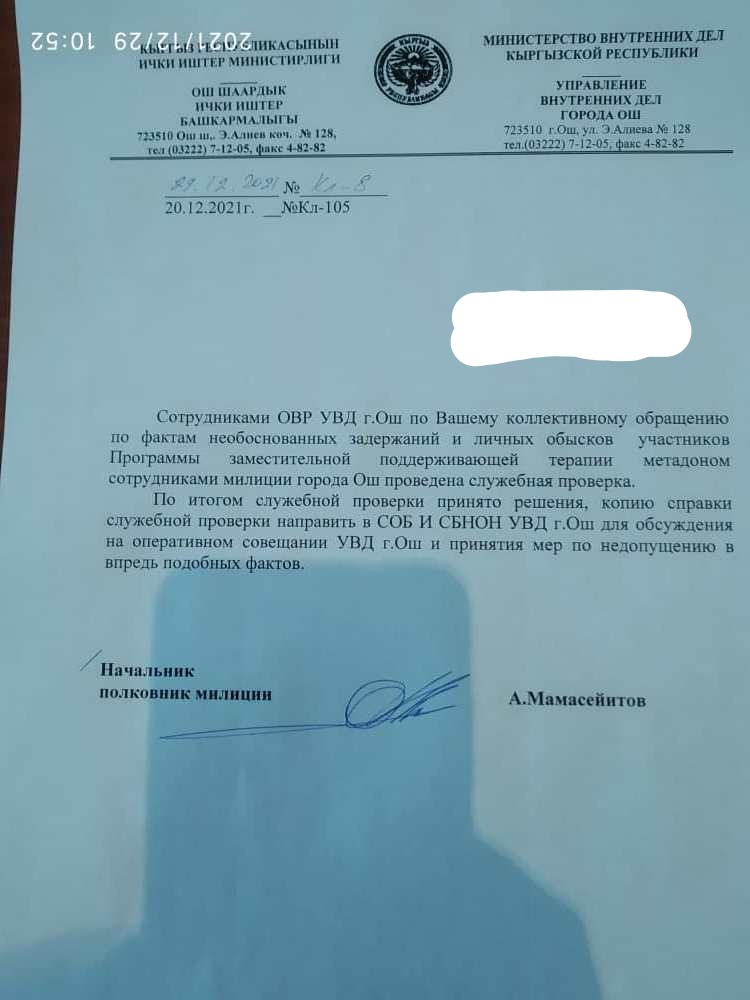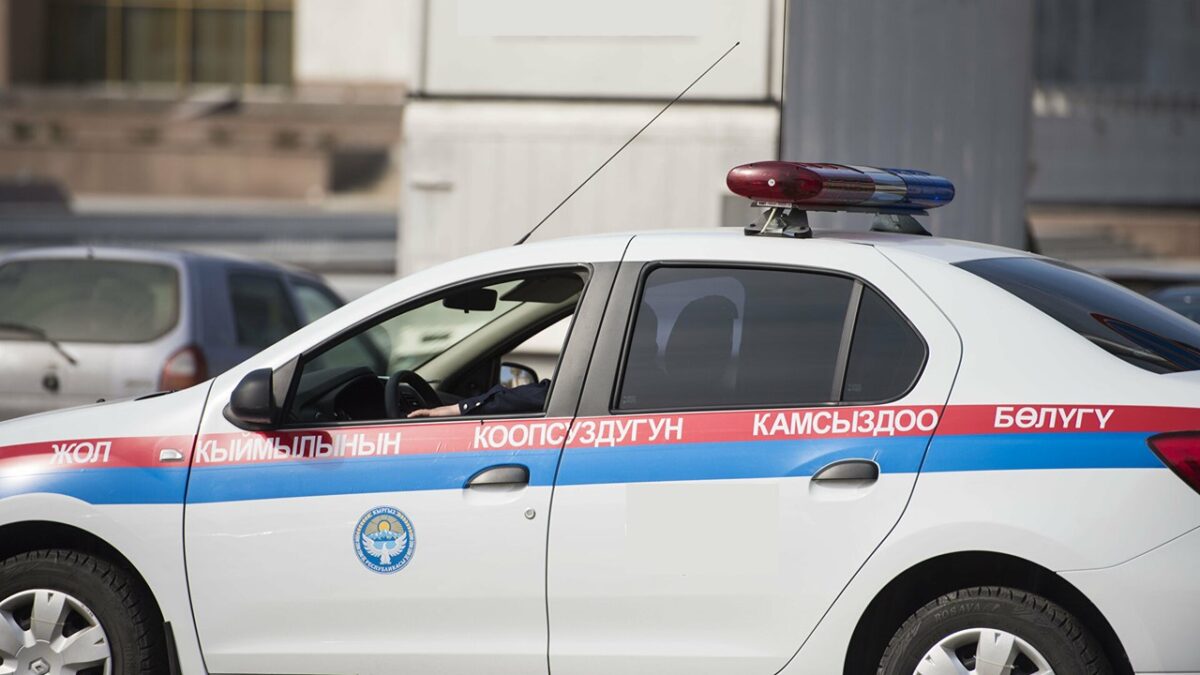In 2020-2021, the REAct system in Kyrgyzstan registered more than 1,300 reports of violations of the rights of people living with HIV, drug users, sex workers, and members of the LGBT community. More than 50% (668 cases) of registered cases reported violations of rights and discrimination by representatives of law enforcement agencies. Of the 668 cases, 59% reported violations by people, who inject drugs and 34% by sex workers. You can get acquainted with detailed statistics on the data page or in statistical reports.
A large percentage of the same type of stories from people, who use drugs about illegal detentions, systematic police brutality could not go unanswered by the Soros-Kyrgyzstan organization, which implements the Street Lawyers project and documents cases of rights violations using the REAct tool. Today, in this article, we look at how you can respond to police violations and what advocacy actions can be taken by an organization that has evidence of such violations.

“We have been working in the REAct database for the third year already. In 43% of our cases, clients are not ready to solve the case, receive legal assistance and defend their rights through contacting law enforcement agencies. This is especially evident when the violator in the case is the representatives of law enforcement agencies themselves. Quite a lot of we have documented complaints people, who inject drugs about harassment, blackmail, and oppressing by police officers. Of course, none of the victims agreed to appeal to the prosecutor’s office with a complaint against the actions of law enforcement officers. – reports Baktygul Zhumabayeva, national coordinator of the REAct system, Soros Foundation-Kyrgyzstan
Ilim*, February 2021
The client came to the site of the methadone maintenance therapy in the morning, at the entrance he was stopped by the officers of the *** District Department of Internal Affairs. The client was not given the opportunity to get methadone, they put him in a car, and they began to demand information about another client of the site. They threatened to put him in jail for harboring, humiliated with words, insulted. They took him to the police station and continued to humiliate and threaten. They held him for three hours and then let him go without an apology. The client refuses to write a complaint due to fear of persecution. Consultations were held: “know your rights”, “behavior during detention”.
*name changed
Ahmed*, March 2021
A client of a Methadone Maintenance Therapy site on *** Street came to get methadone. Received for 7 days. Left the site. He was stopped by police officers, put in a car, taken to a remote place, threatened, beaten, forced to cooperate in order for the client to provide information about other clients of the site. They kept him in the car for more than three hours and then let him go. The client does not want to file a complaint against the police officers. A street lawyer provided advice on “citizen’s rights”.
*name changed
Utkur*, October 2021
**.10.2021, the client left the OST site and was stopped by a district police officer named *** and a police officer ***. They put him in a car, hit him on the head with a plastic bottle of water and told him to either hand over other consumers or pay them 1,000 soms a month for petrol, otherwise he would be jailed. The client agreed to 1,000 soms per month and was released on the condition that the client would bring the money the next day. The next day, fearing police persecution, he left for another city, where he remains to this day.
*name changed
Vladimir*, December 2021
After the client received the methadone and was heading home, a car stopped on the road near the client, two people in civilian clothes got out of it and introduced themselves as police officers and offered the client to take off. At the client’s refusal, they rudely stuffed him into a car and took him. On the spot, a personal search was carried out without witnesses and video recording. Not finding anything illegal, they began to recruit them to work, humiliated them, insulted them with foul language, threatened that they would find something to put himin a zone for if he won’t work for them. After five hours of detention, he was released.
*name changed
As can be seen from the cases, violations by the police are systemic. That is why it was decided to respond also systematically. The lawyer of the project, who advises street lawyers (REActors), wrote an official letter of complaint to the leadership of the Ministry of Internal Affairs that the organization has evidence of regular abuses of authority by police officers in the form of illegal detentions near OST sites. The letter was accompanied by video recordings from street surveillance cameras in neighboring buildings, which recorded the regular presence of police cars near OST sites.

“And oddly enough, we received an official response that this information was taken into account and that the leadership will strengthen control over the legality of the actions of policemen. Yes, this document can be considered an excuse and empty promises. But we made copies of this official letter and distributed them to street lawyers. Now they use this document when negotiating with employees in uniform. Let’s hope that such a strategy will help stop the arbitrariness,” says Baktygul.
Also read:
Access to justice through… deprivation of parental rights?
Reminder:
The project “Street Lawyers” is implemented by the Foundation’s “Public Health” program Soros-Kyrgyzstan with the assistance of the United Nations Development Program. This initiative appeared in response to the current problems of vulnerable groups.
Street lawyers are trained employees of non-governmental organizations in Kyrgyzstan, representing and defending the interests of vulnerable groups, key in the context of deterrence HIV epidemics.
Read more about the project.


